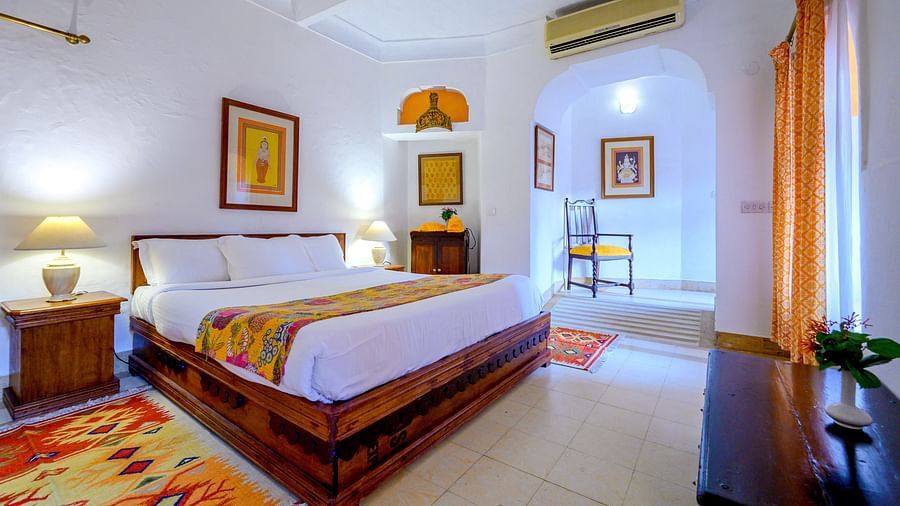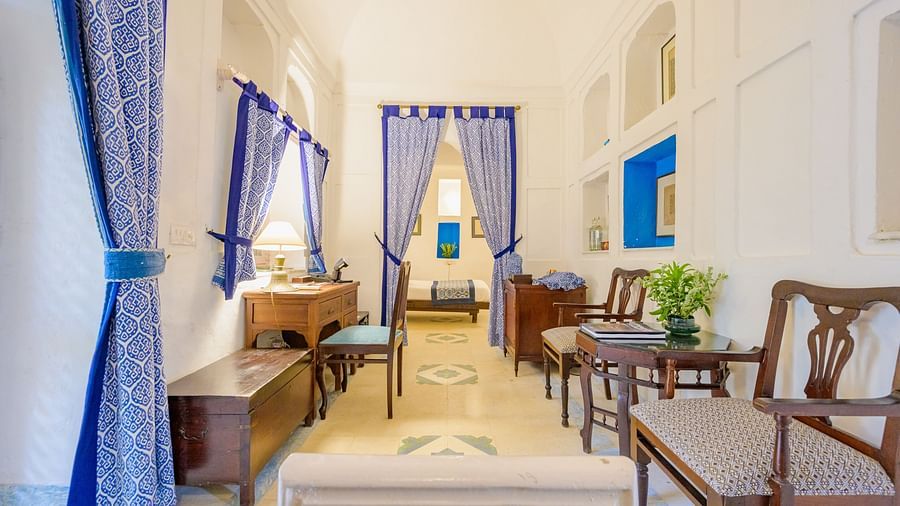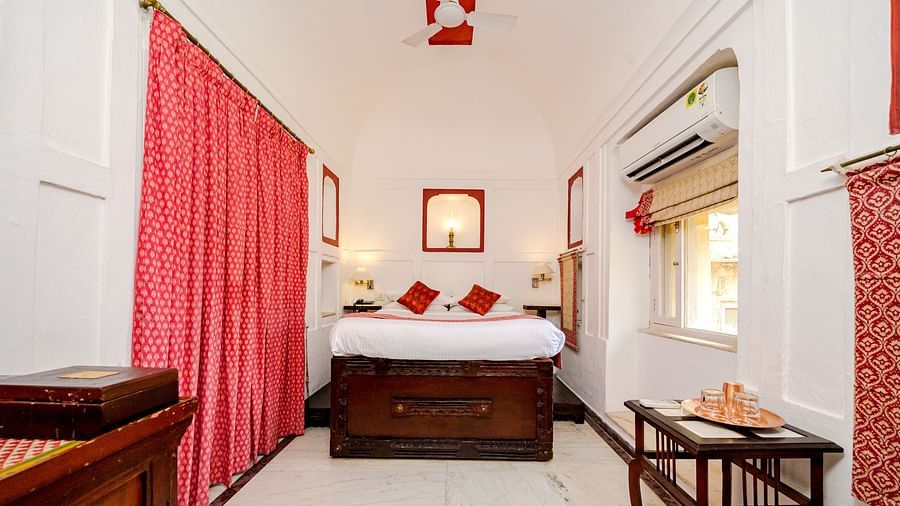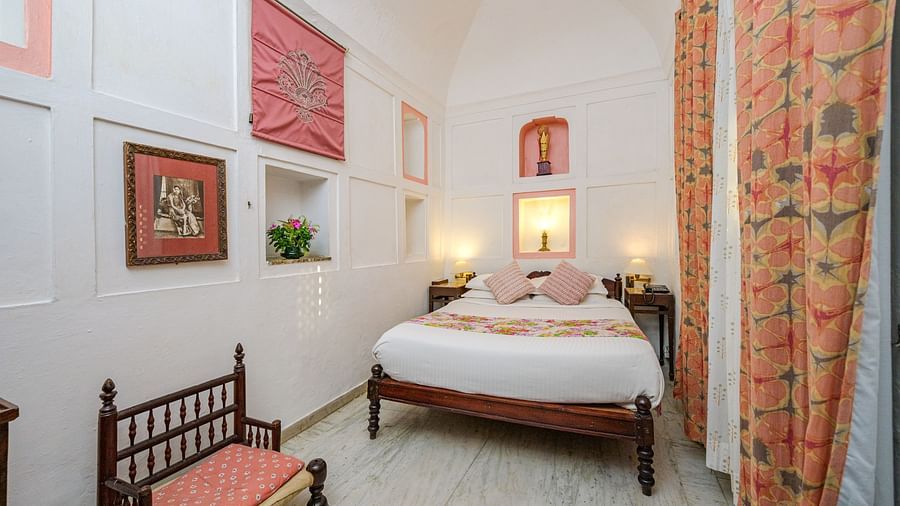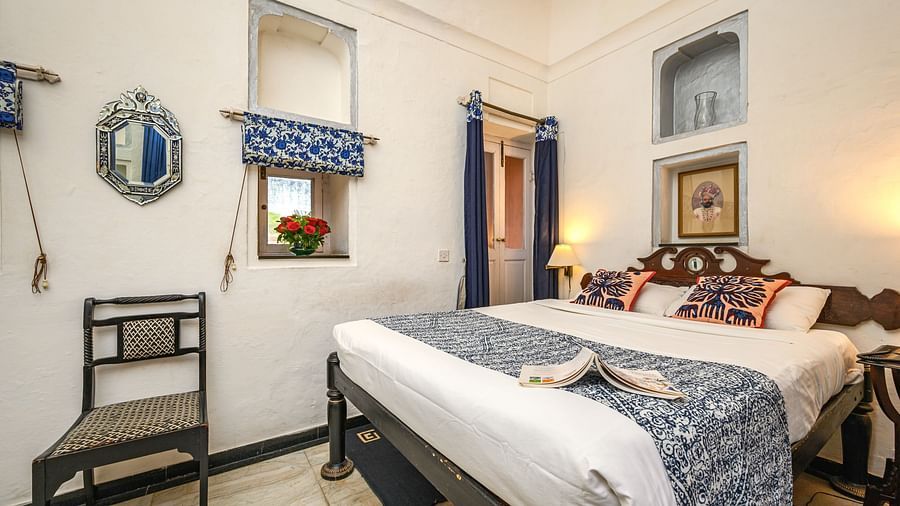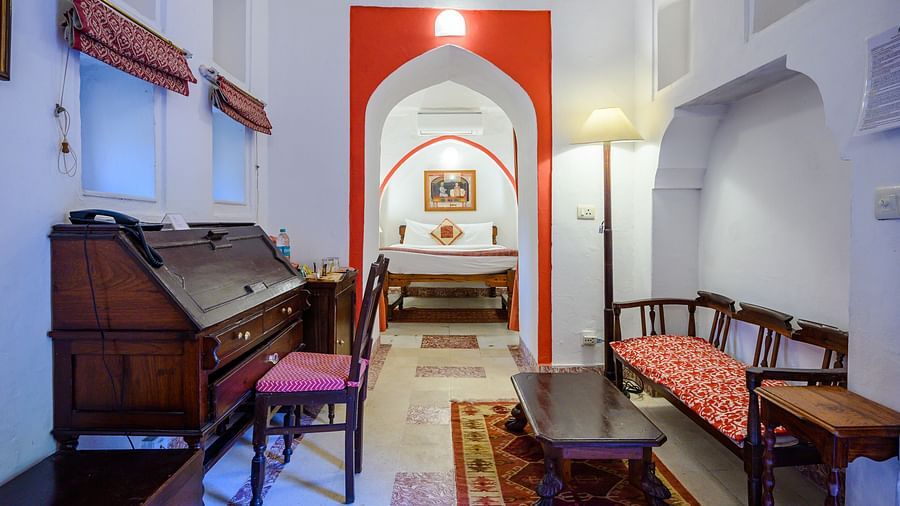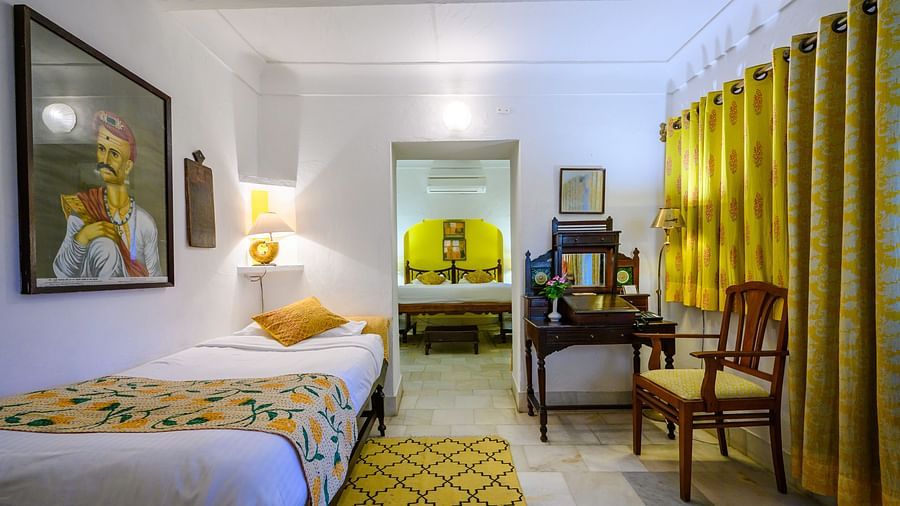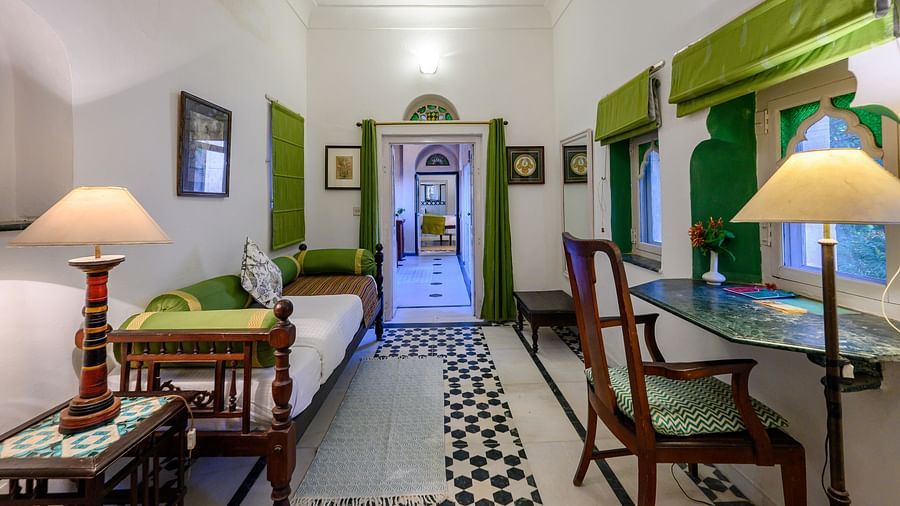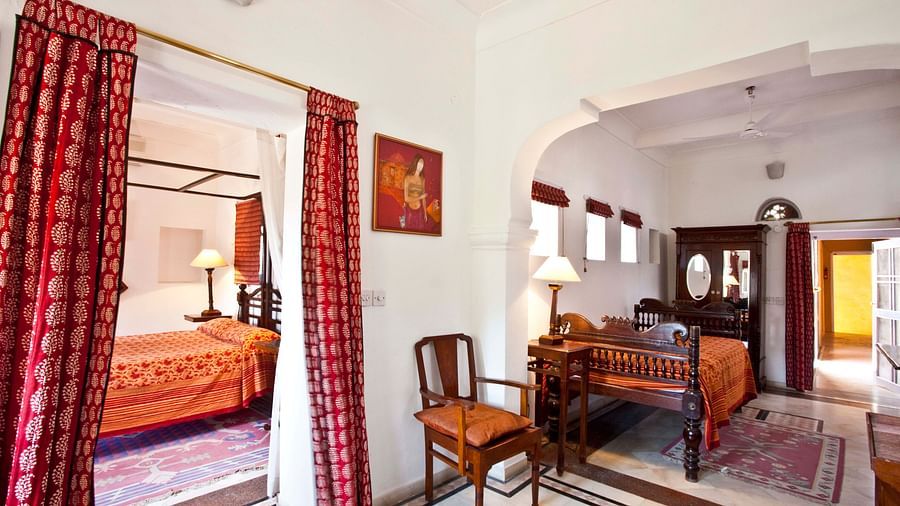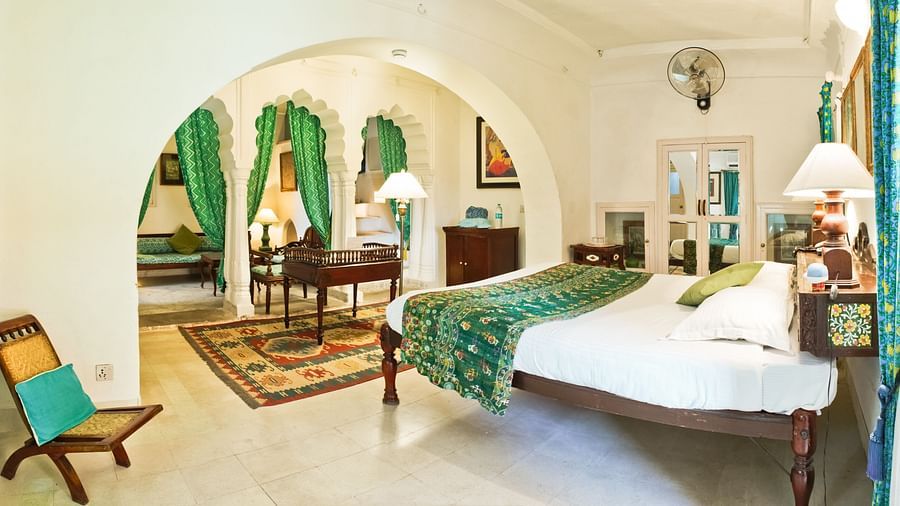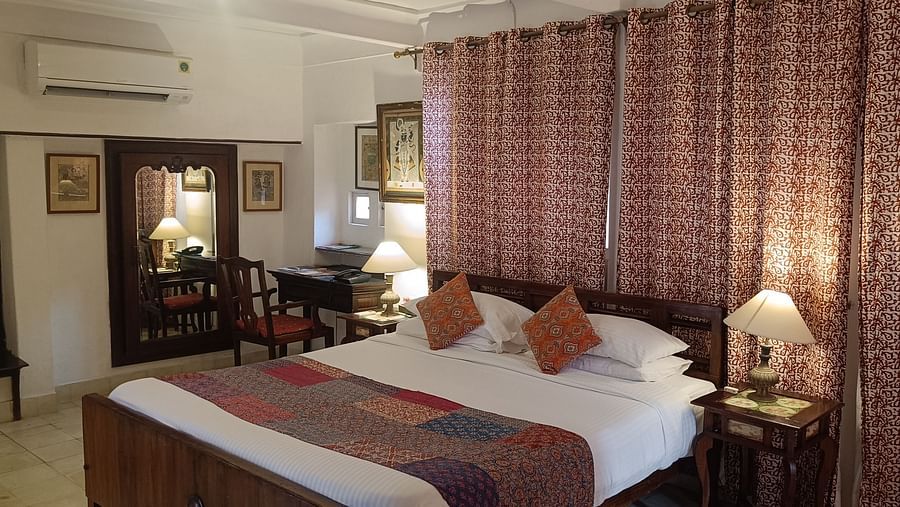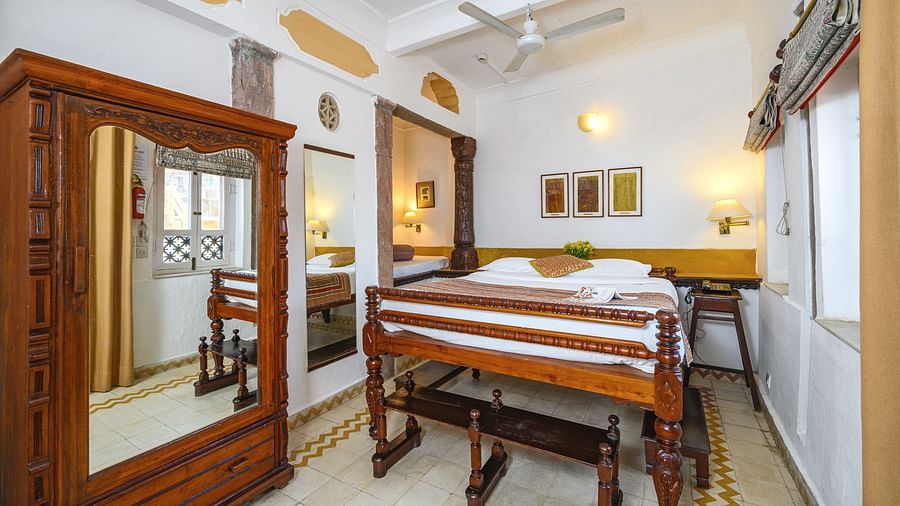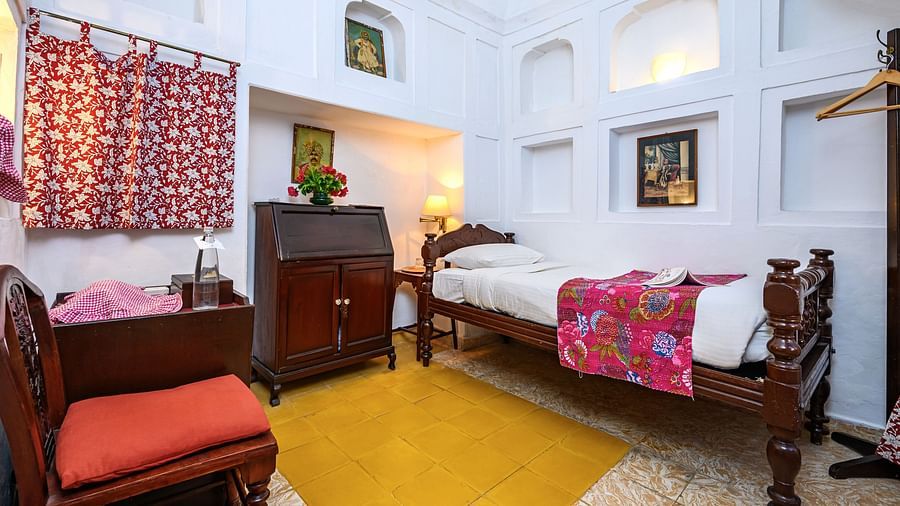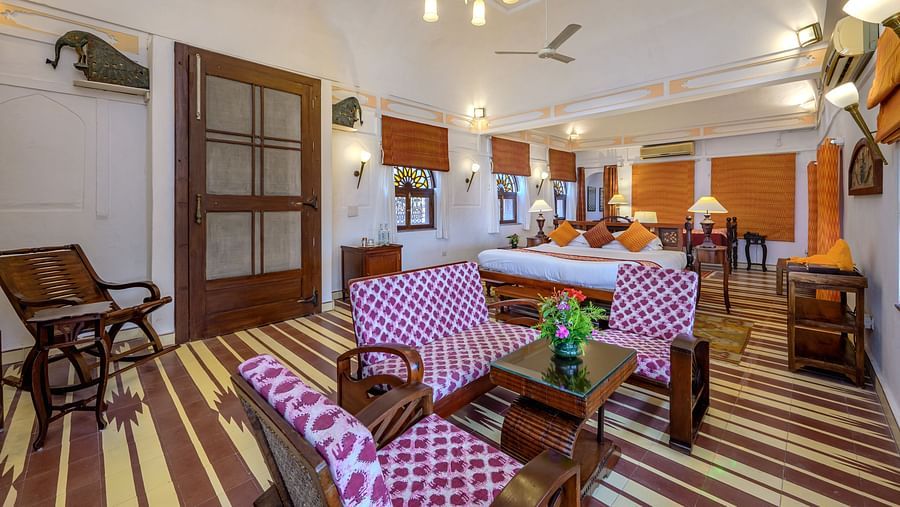- Kesar Mahal - Garden View
- Neelam Mahal - Garden View
- Gomedak Mahal - Garden View
- Moti Mahal - Garden View
- Heera Mahal - Garden View
- Moonga Mahal - Garden View
- Pukhraj Mahal - Fort View
- Panna Mahal - Garden View
- Manak Mahal - Pool View
- Hara Mahal
- Hari Vilas - Pool / Mountain View
- Chandan Mahal
- Lehsuniya Mahal - Garden View
- Kanak Mahal - Fort View
The ‘saffron’ palace lies in the oldest wing with mid-15th century niches and rather thick wall which provides cushioned seats within its width.
In the cool recesses of the oldest wing, lies the duplex suite of the ‘blue sapphire’, its walls marked in a grid of geometric niches.
Named after ‘cinnamon’, one of the nine precious stones of the navaratna, these narrow rooms with vaulted roofs take one back to the mid-15th century.
The ‘pearl’ palace is one of the 9 navaratnas which surround the oldest part of Neemrana Fort-Palace.
This ‘diamond’ palace is located in the south-eastern edge of the oldest, mid-15th century section of the Fort.
In the oldest, mid-15th century section of the Fort lies this ‘coral’ palace, a slender room on the edge of a courtyard with a vaulted roof and a small bathroom. Its balcony overlooks the emerald swimming pool and the gardens.
Located on the south-western edge of the oldest, mid-15th century wing of the Fort, this ‘low-sapphire’ suite has a private balcony and terrace overlooking the pool and garden court as well as a rooftop sun-terrace with truly spectacular views.
The small ‘emerald’ suite, with floors inlaid with geometric cutouts in green Udaipur marble, is a linear space with a a covered sitting area in the middle.
Located on the south-eastern edge above the Mukut Bagh gardens, this suite is in the oldest mid-15th century wing.
Named after Shiva, this ‘green’ room has an Indian seating behind its ‘peacock’ arches and is adorned with early 20th century oleographs produced by Raja Ravi Varma.
Named after Vishnu, Hari Vilas - Pool / Mountain View faces Hara Mahal (Hari-Hara being a composite form to unite the Vaishnava-Shaivite worshippers).
The small palace of sandalwood sits above the Kachha Chowk and has a wooden pillar demarcating a space to sit in a baithak.
Named after the ‘Cat’s Eye’, a precious stone, this single room is reminiscent of a monastic space.
